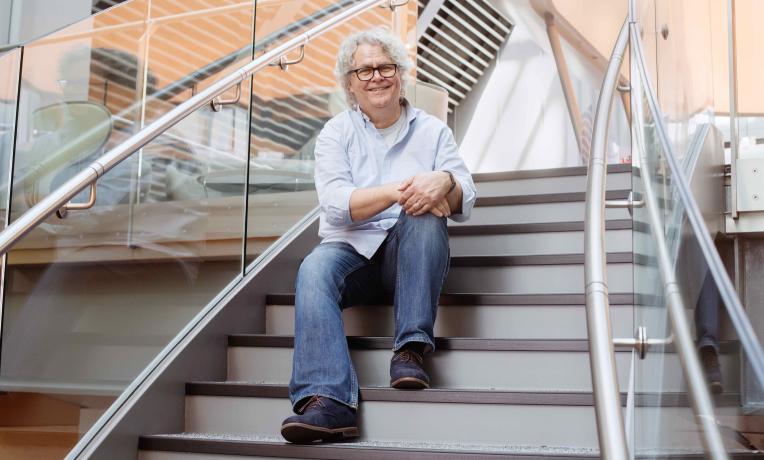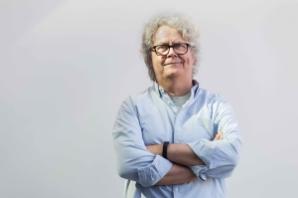Unravelling the intricacies of DNA replication

A biochemist and geneticist by training, John Diffley has always been fascinated by inheritance. He has dedicated his decades-long career to studying DNA replication and the transmission of genetic material. ‘A lot of DNA information needs to be copied every time a cell divides’, he says. ‘That’s 3 billion base pairs in every cell!’
In 2010, Diffley won an ERC grant to reconstitute the entire process of DNA replication in vitro (in a test tube). At the time, the general principles of the two-step mechanism guiding DNA replication were well established. Yet, critical unknowns remained about the details of the process, the requisite number of proteins, their specific roles and modes of regulation.
To contextualise his DNA replication research, Diffley references American theoretical physicist Richard Feynman: ‘What I cannot create, I do not understand.’ He further clarifies, ‘We had to reconstitute the process of DNA replication – the constituent parts – to truly understand it.’
Upon receiving the ERC grant, Diffley’s research group at the Clare Hall Laboratories in London, now the Francis Crick Institute, had already recreated the first step of the replication process. The challenge was the next step, which involved the expression and purification of a sizeable set of (12-13) proteins. This required a new methodology that could break down a complex process into manageable, incremental steps.
Retooling an approach for essential discoveries
‘ERC funding really allowed us to turn the big oil tanker of a research programme around to focus on a different approach’, says Diffley. ‘It can be hard to change a lab, so this support was essential to retooling the lab for biochemical, not genetic, experiments.’
Over the next 4 years, Diffley and his post-docs followed their novel protein purification process, getting closer to their ambitious goal of reanimating the DNA replication process. ‘There was an absolutely key day in August 2014’, he recounts. ‘We saw this tiny radioactive smudge. At this moment, we knew we had finally cracked it.’
By recreating the process, Diffley could make some essential discoveries, or what he calls ‘atomic insights’, including the minimum (16) proteins needed to initiate DNA replication, specific protein functions and corrective processes (i.e. ATP hydrolysis, a proofreading mechanism).
Atomic insights with practical applications
Diffley’s research has transformed the field, inspiring his students, colleagues and laboratories around the world to look closely at structural biology. The very mechanisms explored by his research group also shed light on the misregulation of DNA replication and the causes of genetic mutations in cancerous cells. These discoveries have implications for developing personal medical diagnoses and treatment strategies.
Diffley sees ERC support as instrumental in being able to continue his work. He is already building on the results with a new ERC grant that runs until October 2021. His scientific inquiries remain committed to furthering our understanding of elements of structural biology, such as chromosome duplication.
How the ERC transformed science - interview with John Diffley
About the researcher
John Diffley was born and raised in New York. Upon receiving his PhD from New York University in 1985, Diffley became a postdoctoral fellow with Bruce Stillman at Cold Spring Harbor Laboratory in Long Island, NY. In 1990, he came to the United Kingdom to set up his own research group at the Clare Hall Laboratories in London. In 2015, this merged with the Francis Crick Institute, where he is now Associate Research Director of the Chromosome Replication Laboratory. He won his first ERC Advanced Grant in 2009, and the second one in 2014.


